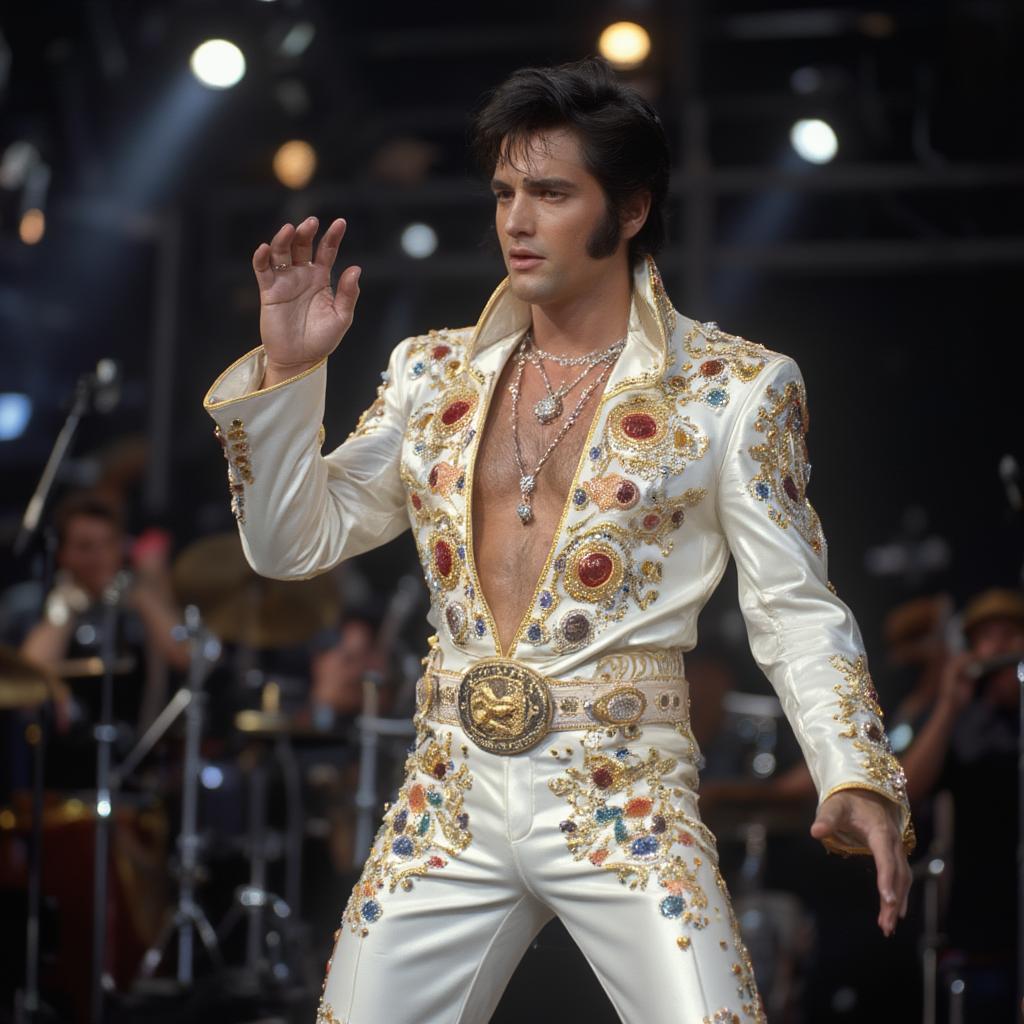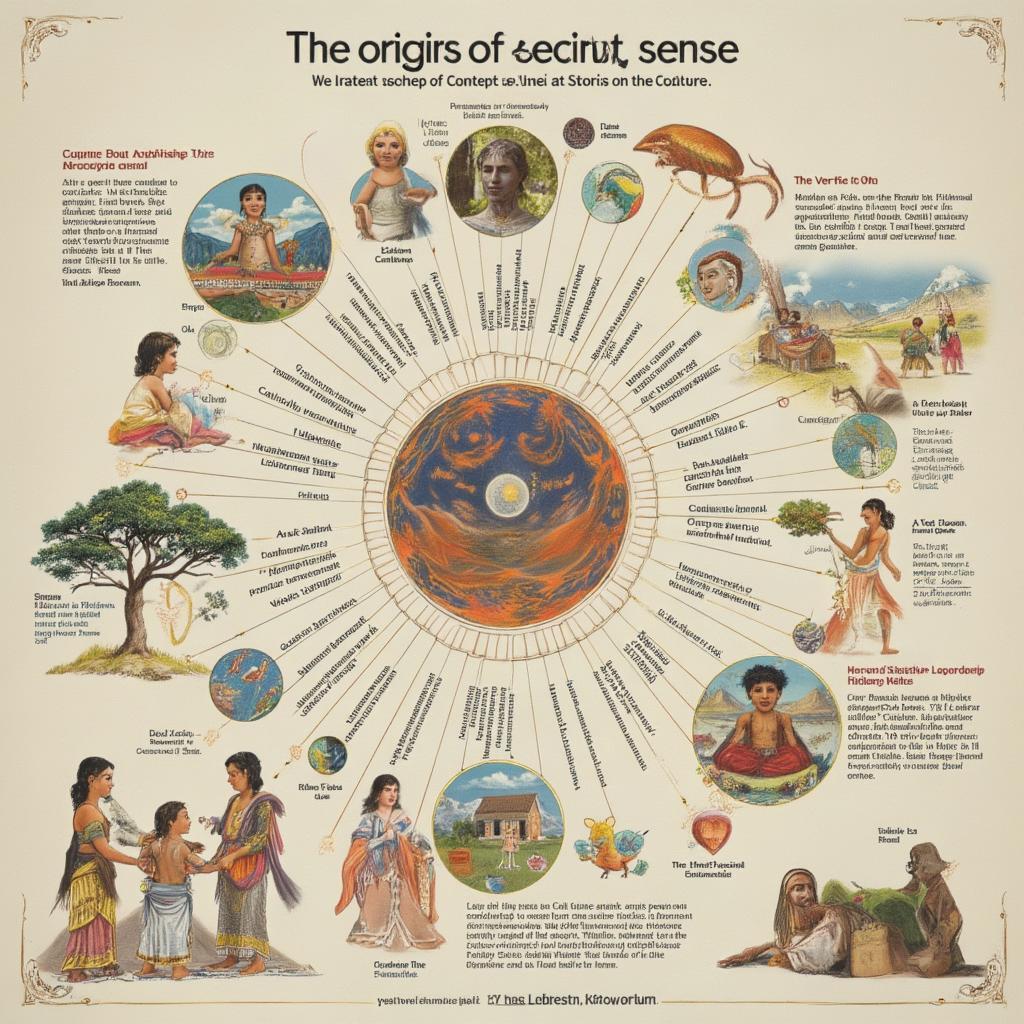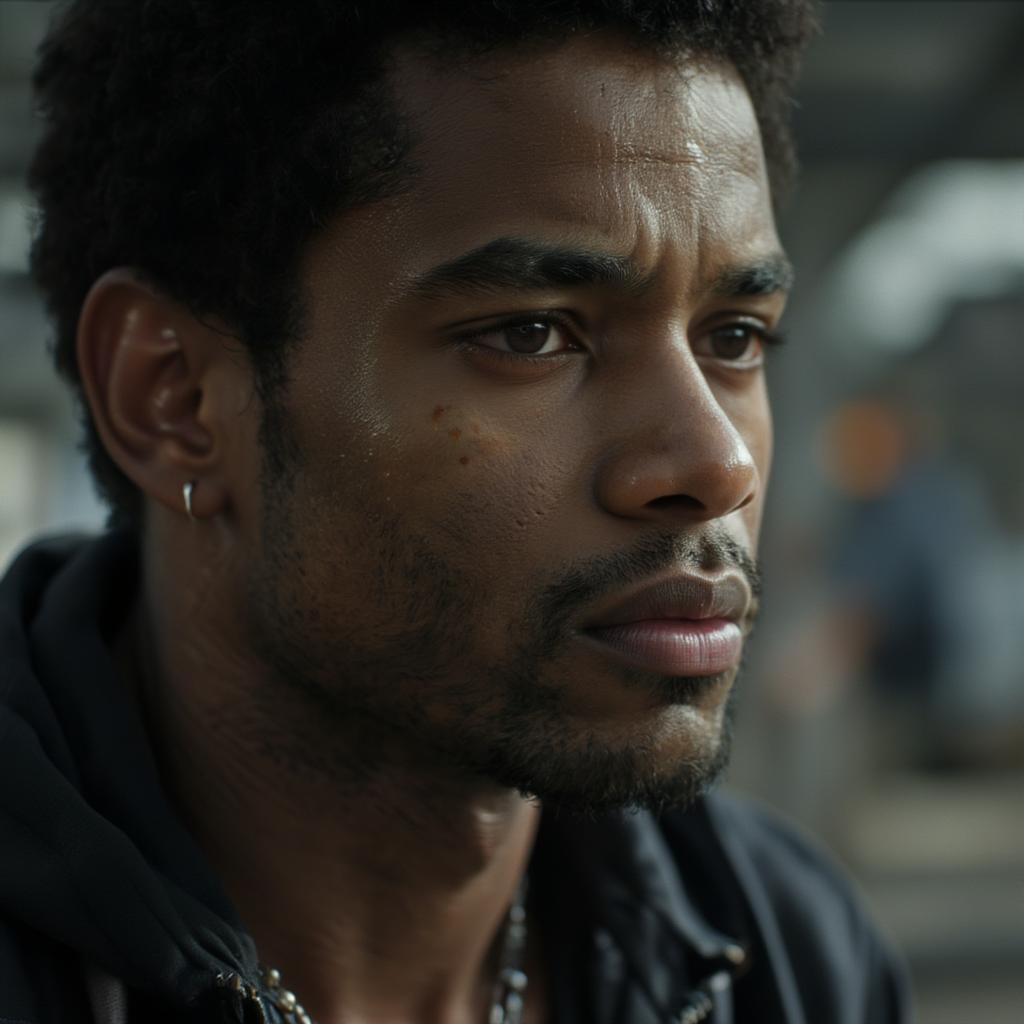Chungking Express: A Neon-Soaked Dive Into Wong Kar-wai’s Masterpiece
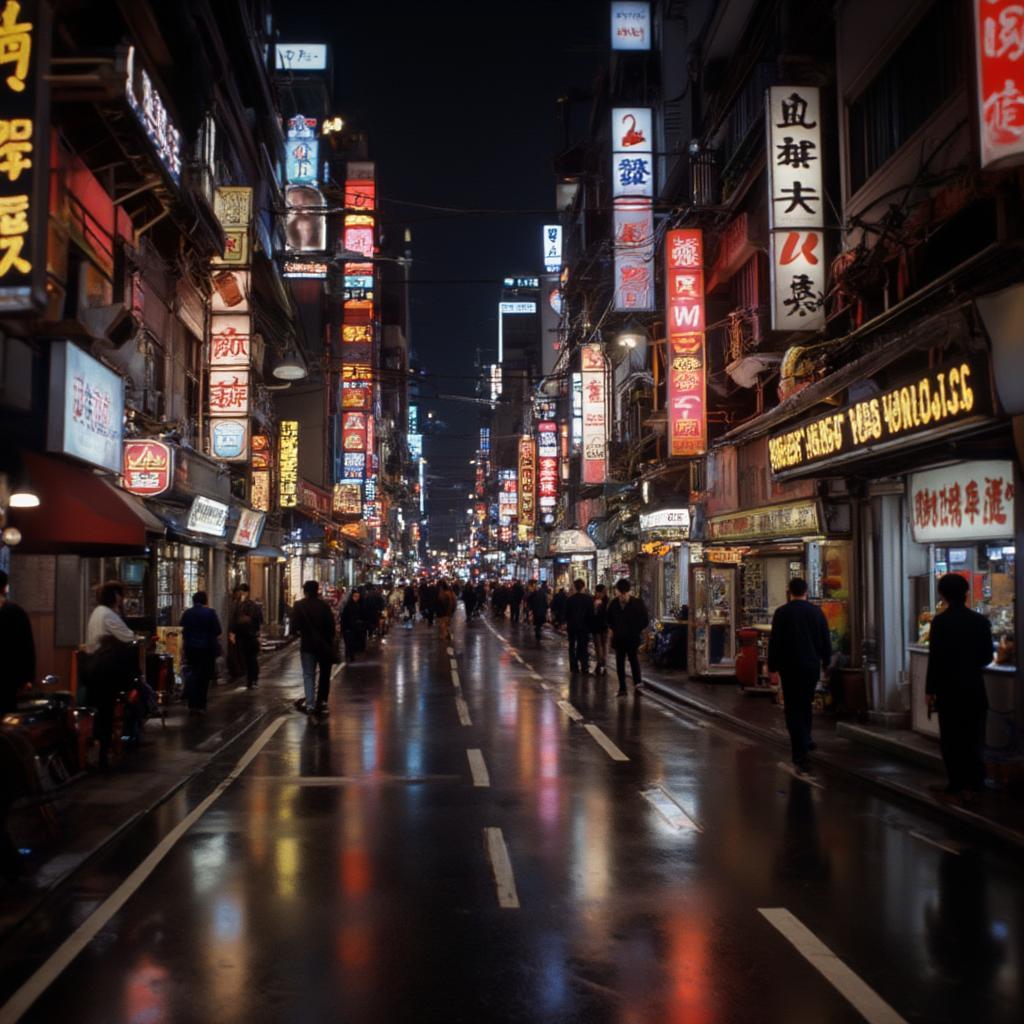
Chungking Express, a 1994 Hong Kong romantic crime comedy-drama, is more than just a movie; it’s an experience. Director Wong Kar-wai’s stylish and fragmented narrative, set against the vibrant backdrop of Hong Kong’s bustling streets, has captivated audiences for decades. But what is it about this film that continues to resonate so deeply? Let’s explore the unique elements that make Chungking Express a cinematic touchstone.
The Allure of Chungking Express: Beyond the Surface
Chungking Express isn’t your typical love story; it’s a melancholic yet hopeful exploration of loneliness, connection, and the fleeting nature of time. Two parallel tales unfold, both revolving around lovelorn policemen and their chance encounters with mysterious women. The film’s charm lies in its raw and authentic depiction of urban life, capturing the rhythms, anxieties, and unexpected joys of the city. The deliberate lack of traditional narrative structure creates a dreamlike quality, immersing viewers in the characters’ emotional landscapes.
Fragmented Storytelling: A Signature of Wong Kar-wai
Wong Kar-wai’s distinctive style is characterized by fragmented storytelling, jump cuts, and the use of voiceover to reveal characters’ inner thoughts. This technique adds a layer of intimacy to the film, allowing us to connect with the protagonists on a deeper level. The stories feel personal, almost like eavesdropping on someone’s diary entries. The unconventional editing creates a sense of disarray and immediacy, reflecting the chaotic nature of the characters’ lives and the rapid pace of the city around them.
“Wong Kar-wai’s genius lies in his ability to transform the mundane into the magical. The way he plays with time, space, and emotions creates a unique cinematic language that continues to inspire filmmakers today.” – Dr. Evelyn Reed, Professor of Film Studies.
Capturing the Essence of Hong Kong: Neon Lights and Urban Life
The visual aesthetics of Chungking Express are iconic, defined by the vibrant neon lights of Hong Kong’s cityscapes and the claustrophobic yet strangely comforting interiors of fast-food joints and rundown apartments. These settings aren’t mere backdrops; they’re integral to the film’s atmosphere and themes. The characters seem almost lost in the urban maze, seeking connection amidst the chaos. This visual style is deeply influenced by the energy and tempo of Hong Kong in the 1990s, a time of rapid change and uncertainty.

Thematic Depth: Loneliness, Obsession, and Ephemeral Encounters
Beneath the stylish visuals and fragmented narrative, Chungking Express delves into profound themes. Loneliness is a central motif, with the characters often feeling adrift and disconnected despite being surrounded by people. Their obsessions – with expired pineapples, pilot’s uniforms, or certain music – act as both coping mechanisms and ways to anchor themselves. The film also explores the idea of chance encounters and how fleeting moments can have a lasting impact on our lives. The possibility of finding connection in the most unexpected places provides a glimmer of hope amidst the pervasive melancholy.
Time as a Central Element: Deadlines and Passing Moments
Time plays a crucial role in Chungking Express. Characters are frequently preoccupied with deadlines, whether it’s a cop obsessively tracking the expiration date on canned pineapples, or another chasing an air hostess in the hope of connecting with her. This emphasis on time reflects the fast-paced environment of Hong Kong and the pressure felt by its inhabitants to keep up with the flow of life. Yet amidst this preoccupation, there are moments of quiet intimacy where time seems to slow down, highlighting the importance of cherishing the present.
The Power of Music: Amplifying Emotions
The use of music in Chungking Express is another defining feature. The score is a blend of original compositions and popular tracks, each carefully chosen to enhance the emotional tone of the scenes. The iconic use of “California Dreamin'” by The Mamas & The Papas, for example, creates a sense of longing and escapism. The soundtrack becomes an extension of the characters’ inner lives, amplifying their hopes, fears, and desires. The music becomes an almost tangible force, pushing the narrative along in a way that is deeply emotional.
“Music is not just a background element in Chungking Express; it’s a character in itself, guiding the emotional journey of the narrative with its evocative melodies and carefully selected songs.” – Dr. Kenji Tanaka, Film Musicologist.
Why Chungking Express Still Resonates Today
Chungking Express continues to be a relevant and beloved film due to its exploration of universal human emotions. Its depiction of loneliness, the search for connection, and the complexities of love resonates with audiences of all backgrounds. The film’s unique visual style and non-linear narrative make it a captivating experience, demanding multiple viewings to fully appreciate its depth. Its influence on subsequent filmmakers is undeniable, cementing its status as a cinematic classic. The film’s enduring power speaks to our shared human experience of fleeting moments and the desire to make them meaningful.
A Timeless Exploration of Human Connection
The human experiences depicted in Chungking Express, despite being set in a specific time and place, are ultimately timeless. The characters’ struggles with loneliness, their longing for love, and their search for meaning in the chaos of modern life are all too familiar. This universality is a key factor in the film’s enduring appeal. Whether it’s the policeman who spends an entire month buying pineapple cans, or the air hostess longing to be somewhere else, their stories touch the core of the human experience.
Influencing Contemporary Cinema: A Lasting Legacy
Chungking Express‘s distinctive style has left an indelible mark on contemporary cinema. Wong Kar-wai’s innovative use of slow motion, jump cuts, and voiceover has been emulated by countless filmmakers, proving the enduring power of his cinematic language. The film’s influence can be seen in the works of directors worldwide, who have been inspired by its unique approach to storytelling and character development. The movie’s impact goes beyond its story; it’s a testament to the power of visual art and cinematic language.
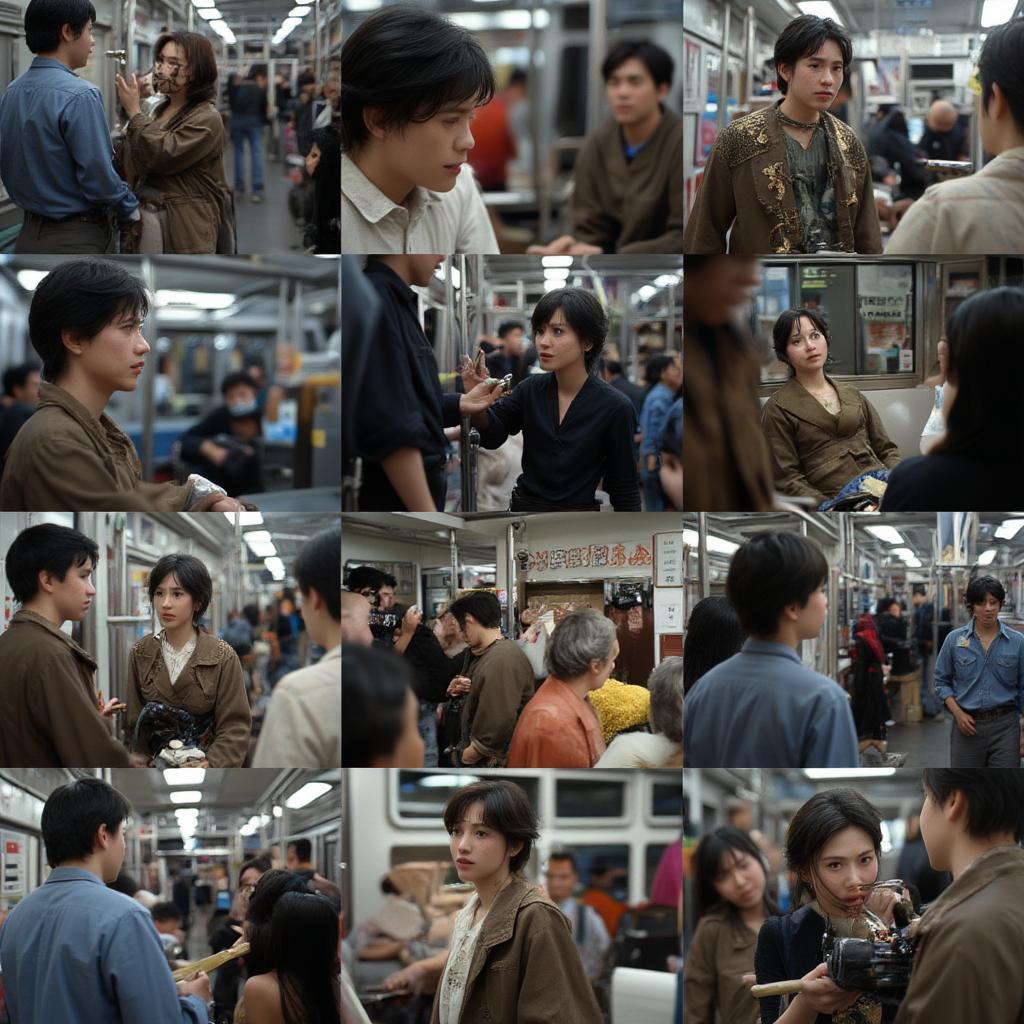
Finding Your Connection with Chungking Express
Whether you’re drawn to the film’s iconic visuals, its thought-provoking themes, or its emotionally resonant storytelling, Chungking Express is a movie that stays with you long after the credits roll. It is a film that invites you to immerse yourself in its world, to ponder its questions, and to find your own connection to its timeless themes. It’s an experience that demands not just passive viewing but active engagement, allowing you to truly become part of the vibrant and emotionally-rich landscape that Wong Kar-wai has so brilliantly created.
Ultimately, Chungking Express is a journey, a dive into the heart of human experience. It’s a film that can be re-watched, each time allowing viewers to discover a new layer of meaning and emotion. Explore its complex characters, its captivating visuals, and its unforgettable soundtrack. Embrace its fragmented narrative, and find the profound connection it offers.
Frequently Asked Questions (FAQ) about Chungking Express
1. What is the primary plot of Chungking Express?
Chungking Express features two loosely connected stories of lovelorn police officers dealing with heartbreak and unexpected connections in Hong Kong. The film explores themes of love, loss, and the fleeting nature of time, using a fragmented narrative style.
2. What makes Chungking Express stylistically unique?
The movie is renowned for its use of vibrant neon lighting, handheld camerawork, jump cuts, slow motion, and voiceover. These techniques contribute to its dreamlike and fragmented narrative style, creating a highly atmospheric experience.
3. Why is the song “California Dreamin'” so iconic in this film?
“California Dreamin'” is used repeatedly in the second story, highlighting the character’s longing for something beyond her current reality. The song becomes a symbol of escapism, desire, and an imagined better life.
4. Who are the main actors in Chungking Express?
The movie stars Tony Leung Chiu-wai as Cop 663, Takeshi Kaneshiro as Cop 223, Faye Wong as Faye, and Brigitte Lin as the mysterious woman in the first story. Each actor brings a unique depth to their characters, adding to the film’s emotional impact.
5. What are some of the main themes explored in Chungking Express?
Key themes include loneliness, obsession, the search for connection, the fleeting nature of time, and the possibility of finding love in unexpected places. The film uses the backdrop of Hong Kong’s urban environment to explore these universal human experiences.
6. How does Wong Kar-wai use time in Chungking Express?
Wong Kar-wai emphasizes the passage of time through characters’ routines, deadlines, and obsessions. He captures the transient nature of time, contrasting moments of hectic city life with quiet and intimate moments between characters.
7. What is the significance of the food and drink in the movie?
Specific food items, like pineapples and the chef salad, and drinks often hold symbolic meaning, expressing characters’ inner thoughts and feelings. They can represent obsessions, connections, and the passage of time.
8. Why does the film remain so popular decades after its release?
Its enduring popularity stems from its exploration of universal themes, its unique visual style, and its emotionally resonant storytelling. It continues to inspire audiences and filmmakers due to its unconventional and innovative approach to cinema.

